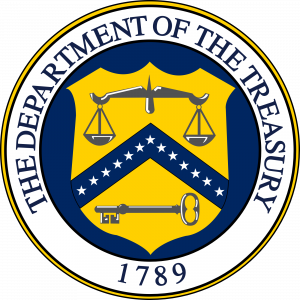 Anyone who has ever been involved in a real estate purchase knows how complicated the process can be. Determining where and what one wishes to purchase, deciding how best to finance the transaction, even knowing exactly why buying something makes sense in the first place—there can be a lot to juggle before one even encounters the complexity of forms, contracts and payment mediums. While going through the process of purchasing real estate in real life, I became curious about purchasing real estate in the metaverse. What exactly would I be purchasing? What can I do on my new virtual real estate? How can I prevent trespassers? Eager to find out (and assuming it would only cost a few hundred bucks), I set out to buy some real estate in the metaverse.
Anyone who has ever been involved in a real estate purchase knows how complicated the process can be. Determining where and what one wishes to purchase, deciding how best to finance the transaction, even knowing exactly why buying something makes sense in the first place—there can be a lot to juggle before one even encounters the complexity of forms, contracts and payment mediums. While going through the process of purchasing real estate in real life, I became curious about purchasing real estate in the metaverse. What exactly would I be purchasing? What can I do on my new virtual real estate? How can I prevent trespassers? Eager to find out (and assuming it would only cost a few hundred bucks), I set out to buy some real estate in the metaverse.
News of Note for the Internet-Minded (3/11/22) – AI Tools, NFT Trading and Ransomware Misdeeds
Is Russia’s invasion of Ukraine altering the landscape of the internet? Can AI help historians decipher ancient texts? How did two siblings allegedly use a digital token to defraud investors? Explore this and more in today’s News of Note.
When It Comes to Copyright Applications, Honest Mistakes Can Still Hurt You
The U.S. Supreme Court’s recent decision vacating the Ninth Circuit’s ruling in Unicolors, Inc. v. H&M Hennes & Mauritz, L.P., was a win for authors who, during the copyright application process, unwittingly submit inaccurate information to the U.S. Copyright Office (e.g., because they did not understand the law, and/or were not assisted by competent copyright counsel). Nonetheless, in The Cost of Honest Mistakes: Even After Unicolors, Copyright Application Errors May Still Have Consequences, our colleagues Sam Eichner and Lori Panosyan explain why the decision does not do away with the risks associated with honest mistakes in U.S. Copyright Office filings (and why authors should take care to mitigate such risks).
News of Note for the Internet-Minded (3/2/22) – AR Defense Systems, VR Adventures and Defrauding Bots
This week’s News of Notes includes a controversial use of facial recognition technology, stories highlighting AI’s role in both energy production and consumption, the continued use of ransomware and bots for criminal purposes, and more.
Protect, Mitigate and Recover: Making Your Company Ransomware-Resistant
As is the case with many types of cybersecurity threats, shielding one’s company from ransomware attacks calls for measures that simultaneously build the strongest protections possible while also adopting mitigation strategies that assume those measures will fail.
First-of-Its-Kind Settlement Brings Clarity for Players in Retail Crypto Market
 On February 14, the Securities and Exchange Commission (SEC) announced that it had entered into a settlement with BlockFi Lending LLC, a subsidiary of BlockFi Inc., (collectively BlockFi) over first-of-its-kind charges that BlockFi had failed to register the offers and sales of its retail crypto lending product, BlockFi Interest Accounts (BIAs), and that BlockFi had violated the registration provisions of the Investment Company Act of 1940. The charges and resulting settlement not only provide a path forward for BlockFi, but also provide clearer guidance to all players in the retail crypto market and especially those involved with crypto lending platforms.
On February 14, the Securities and Exchange Commission (SEC) announced that it had entered into a settlement with BlockFi Lending LLC, a subsidiary of BlockFi Inc., (collectively BlockFi) over first-of-its-kind charges that BlockFi had failed to register the offers and sales of its retail crypto lending product, BlockFi Interest Accounts (BIAs), and that BlockFi had violated the registration provisions of the Investment Company Act of 1940. The charges and resulting settlement not only provide a path forward for BlockFi, but also provide clearer guidance to all players in the retail crypto market and especially those involved with crypto lending platforms.
News of Note for the Internet-Minded (2/17/22) – Metaverse Gambling, Vanishing NFTs and AI Gaming
Shifting Landscapes and Veiled Identities: The Usual Suspects Behind Ransomware Attacks
 The actors behind ransomware tend to fall into two categories: cybercriminal gangs, often based in Eastern Europe, and groups backed by economic outcasts like Iran, Russia and North Korea. Historically the first prefer a shotgun approach; the second behave more like snipers. Here are a few of the groups that have been linked to recent ransomware and are still a threat.
The actors behind ransomware tend to fall into two categories: cybercriminal gangs, often based in Eastern Europe, and groups backed by economic outcasts like Iran, Russia and North Korea. Historically the first prefer a shotgun approach; the second behave more like snipers. Here are a few of the groups that have been linked to recent ransomware and are still a threat.
Department of Treasury Study Addresses NFTs, Online Platforms and the Emerging Digital Art Space
 Last week, the U.S. Department of the Treasury released a report entitled “Study of the Facilitation of Money Laundering and Terror Finance Through the Trade in Works of Art” that discussed risks in the art sales ecosystem, ranging from high-value traditional art to NFTs and online sales platforms. Section 6110(c) of the Anti-Money Laundering Act of 2020 (AMLA), enacted as part of the National Defense Authorization Act for Fiscal Year 2021, had directed the U.S. Department of the Treasury to study the facilitation of money laundering (ML) and terror finance (TF) through the trade in works of art (the “Study”). The Study discusses which art market participants and sectors of the high-value art market in the United States present ML and TF risk, and that as a result may warrant regulation as financial institutions under the Bank Secrecy Act.
Last week, the U.S. Department of the Treasury released a report entitled “Study of the Facilitation of Money Laundering and Terror Finance Through the Trade in Works of Art” that discussed risks in the art sales ecosystem, ranging from high-value traditional art to NFTs and online sales platforms. Section 6110(c) of the Anti-Money Laundering Act of 2020 (AMLA), enacted as part of the National Defense Authorization Act for Fiscal Year 2021, had directed the U.S. Department of the Treasury to study the facilitation of money laundering (ML) and terror finance (TF) through the trade in works of art (the “Study”). The Study discusses which art market participants and sectors of the high-value art market in the United States present ML and TF risk, and that as a result may warrant regulation as financial institutions under the Bank Secrecy Act.





